Olive Oil Benefits For The Skin
Learn the best ways to use this oil so you can reap all its amazing advantages.
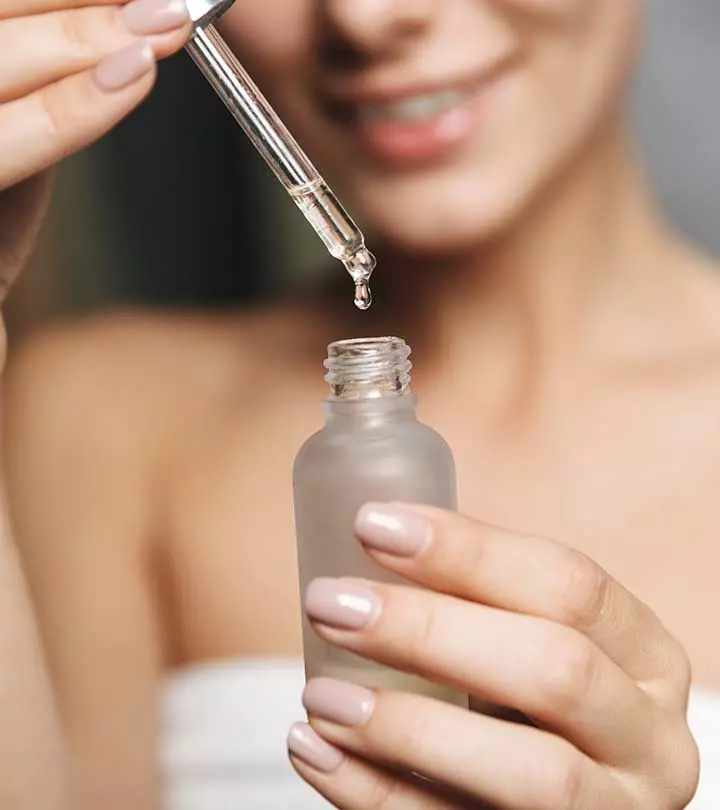
Image: Shutterstock
Olive oil is commonly used in skincare and cosmetic products. The benefits of olive oil for skin can be attributed to its antibacterial and antioxidant properties – and its anti-inflammatory properties help manage skin conditions like eczema and psoriasisi A common, chronic skin condition that causes itchy and scaly patches on the skin, often triggered by a cold, infection, or stress. .
You can attain its natural skincare benefits with both topical application and ingestion. Continue reading to know more about the benefits of olive oil for skin.
 Know Your Ingredient: Olive Oil
Know Your Ingredient: Olive OilWhat Is It?
A light-yellow oil derived from olives.
What Are Its Benefits?
It helps manage skin conditions like acne, eczema, and psoriasis, nourishes the skin, treats wounds, burns, and infections, and fights signs of aging.
Who Can Use It?
Anyone except individuals who might be allergic to olive oil.
How Often?
You can use it topically as part of your daily skincare routine.
Caution
Always do a patch test before using the oil on your skin, and consult your dermatologist before adding it to your skincare routine to avoid allergic reactions and side effects like redness, irritation, and swelling.
In This Article
Benefits Of Olive Oil For The Skin And Face
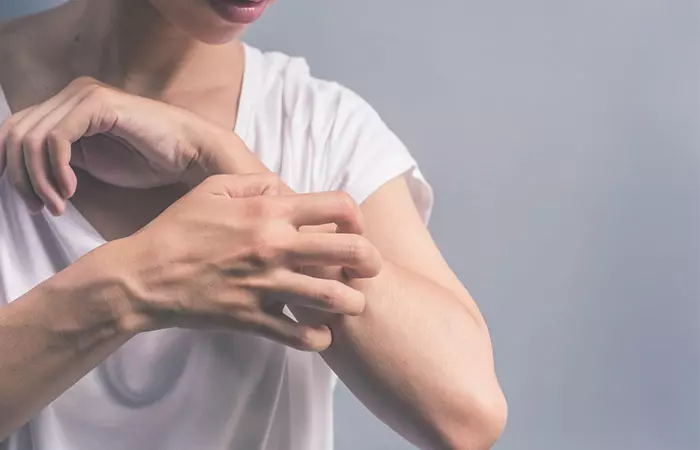
1. Has Moisturizing Properties: Vegetable oils contain essential fatty acids (EFAs). EFAs are of great use in the production of cosmetics. They are used either as active incipients or raw materials to synthesize novel compounds. EFAs are easily integrated into the skin’s hydro-lipid film. These healthy fats nourish, moisturize, and protect the skin (1).
2. Has Anti-Inflammatory Properties: Olive oil is a traditional treatment for wounds, sores, and infections. Various studies back the effectiveness of its topical use and absence of side effects. Olive has long been used to accelerate wound healing. It may be used for treating diabetic foot ulcers, atopic dermatitis, diaper dermatitis, episiotomy woundsi The tears made during childbirth to widen the vaginal opening, which usually heal within a week. , and nipple ulcers. It improves skin and mucous tissue damage and accelerates wound healing (2).
3. Is Rich In Nutrients: Olive oil comes from the fruits of Olea europaea trees. It consists mainly of oleic acid, with smaller quantities of other fatty acids such as linoleic acid and palmitic acid (3). Olive oil contains more than 200 different chemical compounds – including sterols, carotenoidsi Color pigments that occur naturally in plants, bacteria, fungi, and algae that give them their respective yellow, orange, and red colors. , triterpenic alcohols, and phenolic compounds.
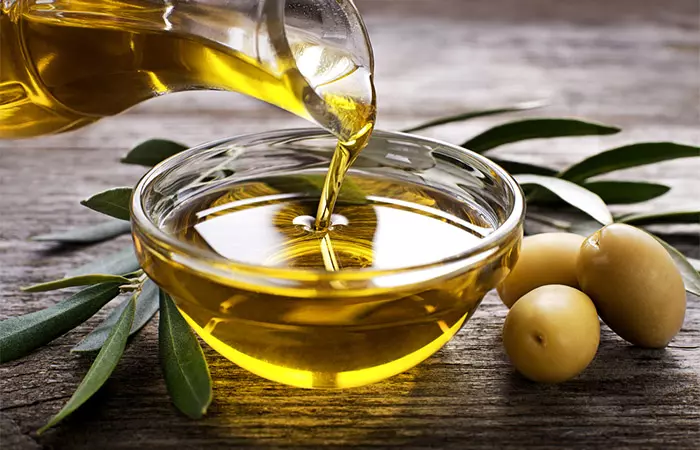
4. Has Antioxidant Properties: Olive oil contains abundant hydrophilic phenols with higher antioxidant properties than vitamin E. These antioxidants exhibit anti-inflammatory properties if olive oil is included in the diet.
5. Has Anti-Aging Properties: Olive oil may regulate skin aging with its antioxidant and stabilizing action on the cellular membranes (1). According to a study, extra virgin olive oil applied to the skin delayed the onset of skin cancer when exposed to UVB radiation (3).
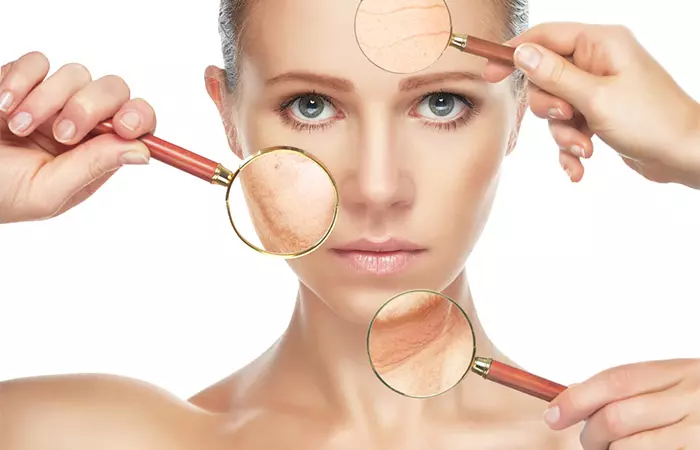
6. May Soothe Skin Conditions: Olive oil may help manage a few skin conditions (2). Olives may treat inflammation caused by diapers in children. The squalene in olive oil has antioxidant and moisturizing properties and can treat seborrheic dermatitisi A common chronic skin condition that affects the oily areas of the body, especially the scalp, causing dandruff and scaly patches. , acne, psoriasisi A common, chronic skin condition that causes itchy and scaly patches on the skin, often triggered by a cold, infection, or stress. , and atopic dermatitis. However, the treatment is in conjunction with other treatment modalities and is not standalone. Thus, using just olive oil may not be as effective in soothing inflammation.
7. Has Antimicrobial Properties: The hydroxytyrosoli An organic compound found in olive oils and wines, with antioxidant and anti-inflammatory properties that help protect the skin and eyes. in olive oil is a good antimicrobial agent for treating human infections. Studies also support the antifungal properties of the oil (4).
8. May Improve Overall Skin Health: Olive oil is good for overall skin health. It moisturizes the skin and prevents early aging. It protects the skin from UV light. The anti-aging oil also contains oleuropein which acts as a potent scavenger of oxygen-free radical (5). This way, it may help in skin nourishment and boost overall skin health.
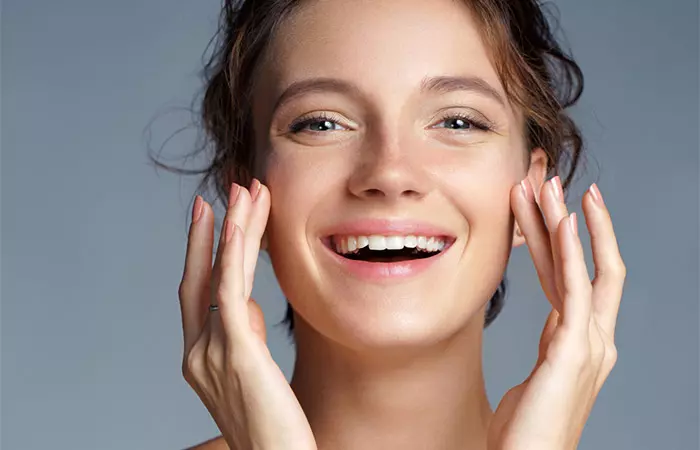
9. May Treat Burns: In a randomized controlled trial, a mixture of olive oil, sesame oil, and honey was demonstrated to be a useful treatment for burns. The mixture prevented infections, accelerated tissue repair, and facilitated debridement (6).
 Trivia
TriviaYou can enjoy all these olive oil benefits when you learn how to use it on your skin efficiently. Learn more in the next section.
Key Takeaways
- Olive oil is a good source of essential fatty acids that help nourish and moisturize the skin.
- It has anti-inflammatory, antimicrobial, and antioxidant properties, which help treat inflammatory skin diseases and accelerate wound healing.
- Although there are no side effects, it is better to do a patch test before using olive oil on the skin.
How To Use Olive Oil For The Skin
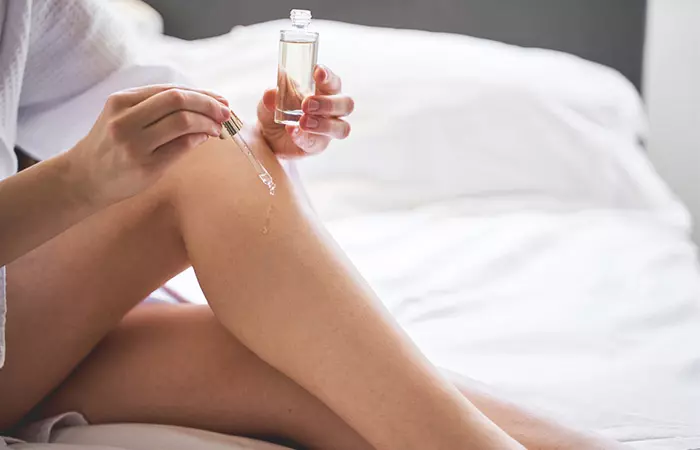
- You can apply olive oil to your skin directly as a moisturizer. Massage the olive oil over the skin in small gentle circular motions.
- You can add olive oil to your skincare products and homemade face packs and masks.
- You can also mix olive oil with other natural ingredients like orange juice, lemon juice, green tea, pink salt, etc.
- You can use olive oil as the base with other essential oils.
- You can use olive oil as a natural moisturizing cleanser to remove makeup.
 Trivia
TriviaOne of the best ways to incorporate olive oil into your skin care regimen or beauty routine is by using it in a homemade facemask. Learn to make one in the next section.
How To Make An Olive Oil Face Mask
What You Need
- 1 tablespoon of olive oil
- 1 teaspoon of honey
- ½ a teaspoon of orange zest (fresh)
- 1 egg yolk (for dry skin)
- Vitamin E capsule
Note: You can replace the egg yolk with a paste of egg white if you have oily skin.
Procedure
- Mix the olive oil and honey with some freshly grated orange zest.
- Add in the vitamin E from the capsule.
- Beat the egg yolk into the mixture.
- Whisk the mixture until it is blended.
- Apply the mixture to your face and neck. You can use your fingers or a brush.
- Leave it on for 20 minutes, and wash off with warm water.
- Rinse off with cold water.
Can olive oil harm your skin? Continue reading to know the answer.
Risks And Side Effects
Treatment with olive oil has no potential side effects. Olive oil does not burn or traumatize the skin (1). But perform a patch test to be on the safe side. Apply a little olive oil to your skin and wait for a few minutes. Check for any adverse effects like redness, irritation, swelling, burning, or inflammation. Additionally, it is also considered moderately comedogenic and should be used in limited amounts on acne-prone or oily skin to prevent possible breakouts.
Conclusion
Olive oil is good for the skin. It is used in most skin care and cosmetic products. The antibacterial and antioxidant properties of olive oil protect the skin. The oil also helps manage conditions like eczema and psoriasis. Anecdotal evidence supports using olive oil for acne scars as well. However, consult a dermatologist and perform a patch test before using the oil.
Frequently Asked Questions
Can we apply olive oil on the skin daily?
Yes. Olive oil is safe to use on the skin daily for optimum hydration.
Does olive oil darken skin?
No, applying this oil does not darken the skin. However, some people use olive oil for tanning, as it can attract and retain more heat from the sun. This potentially speeds up the tanning process.
Does olive oil make skin glow?
Yes, you can use olive oil for glowing skin. It can also leave the skin rejuvenated.
Can I leave the olive oil on my face overnight?
Yes, leaving olive oil on the skin overnight offers the skin plenty of time to relax and rejuvenate.
Does olive oil clear dark spots?
Olive oil is less effective than other essential oils in treating dark spots. Olive oil aids overall skin brightening but may not fade hyperpigmentation.
Does olive oil cause pimples?
Olive oil is moderately comedogenic, which indicates that it has the potential to clog pores and cause acne in some people.
Transform your skin with olive oil. Watch this video to know more about how to incorporate this natural oil into your daily routine to achieve healthy and glowing skin.
Illustration: Olive Oil: Benefits Uses Side Effects and More
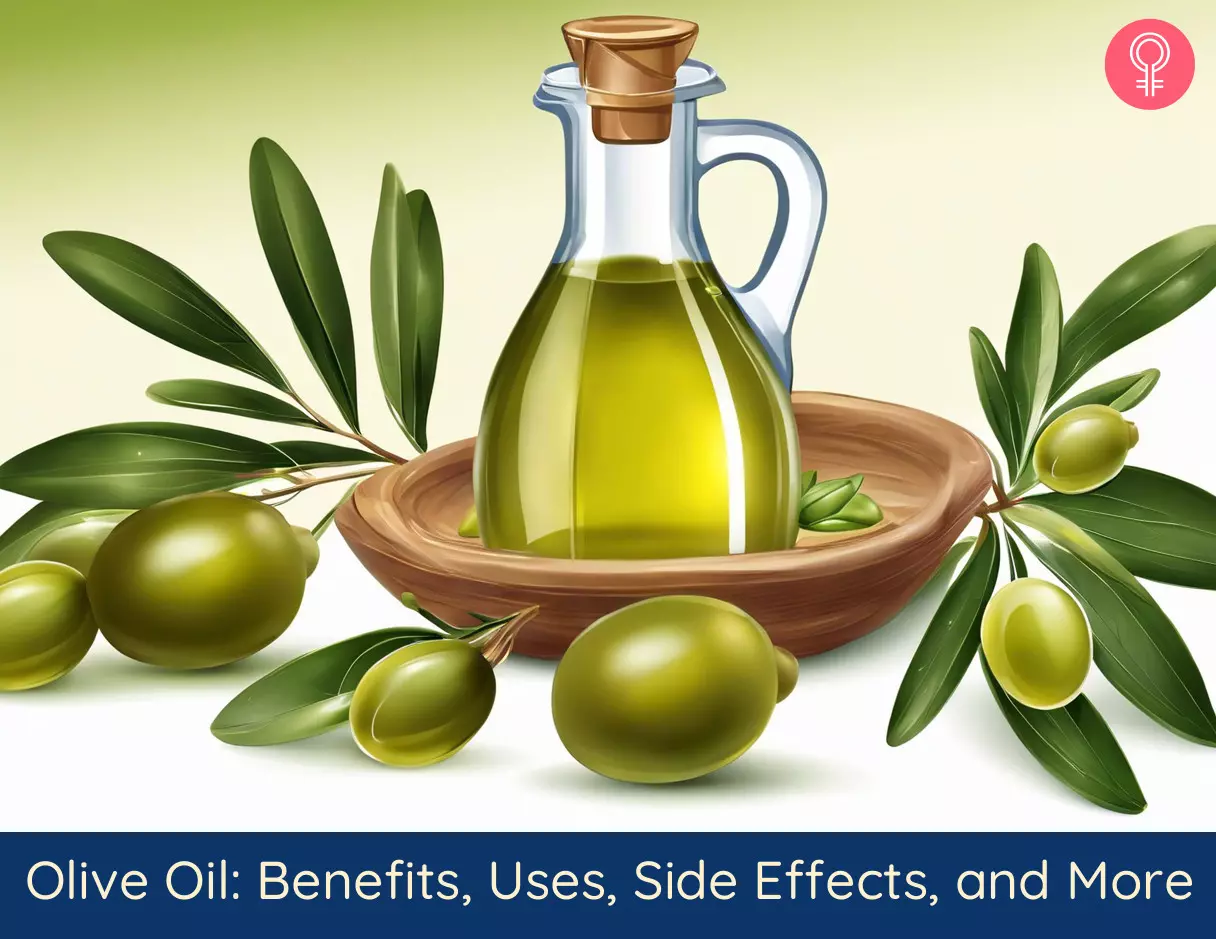
Image: Stable Diffusion/StyleCraze Design Team
References
Articles on StyleCraze are backed by verified information from peer-reviewed and academic research papers, reputed organizations, research institutions, and medical associations to ensure accuracy and relevance. Read our editorial policy to learn more.
- Effect of Olive Oil on the Skin
https://www.sciencedirect.com/science/article/pii/B9780123744203001236 - Anti-Inflammatory and Restorative Effects of Olives in Topical Application
https://www.hindawi.com/journals/drp/2021/9927976/ - Anti-Inflammatory and Skin Barrier Repair Effects of Topical Application of Some Plant Oils
https://www.ncbi.nlm.nih.gov/pmc/articles/PMC5796020/ - Antifungal Activity of Cinnamon Oil and Olive Oil against Candida Spp. Isolated from Blood Stream Infections
https://www.ncbi.nlm.nih.gov/labs/pmc/articles/PMC5028442/ - Oleuropein a component of extra virgin olive oil lowers postprandial glycaemia in healthy subjects
https://www.ncbi.nlm.nih.gov/labs/pmc/articles/PMC6005585/ - Effect of Olea ointment and Acetate Mafenide on burn wounds – A randomized clinical trial
https://www.ncbi.nlm.nih.gov/labs/pmc/articles/PMC4598908/
Read full bio of Dr. Sanober Pezad Doctor
Read full bio of Anjali Sayee
Read full bio of Ramona Sinha
Read full bio of Monomita Chakraborty







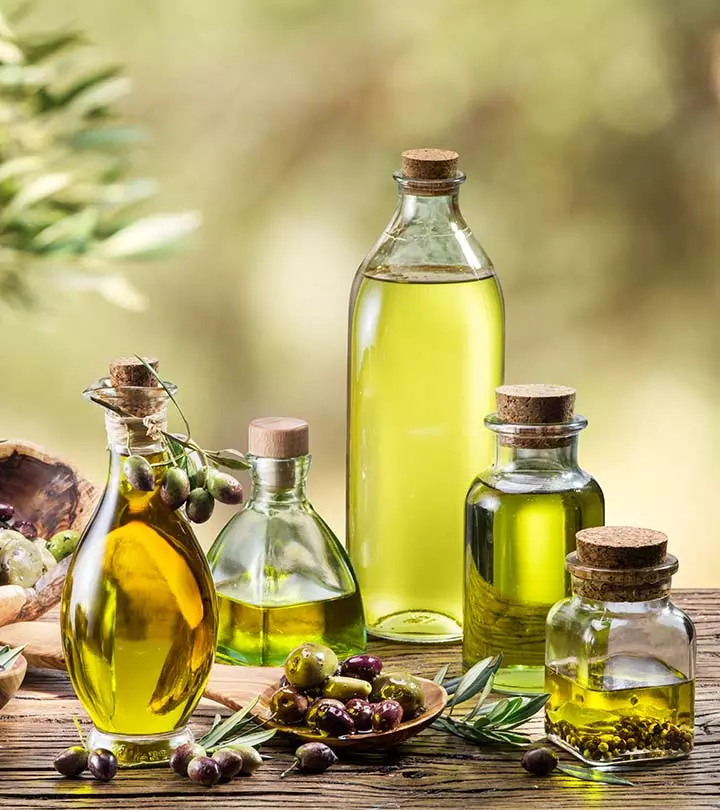
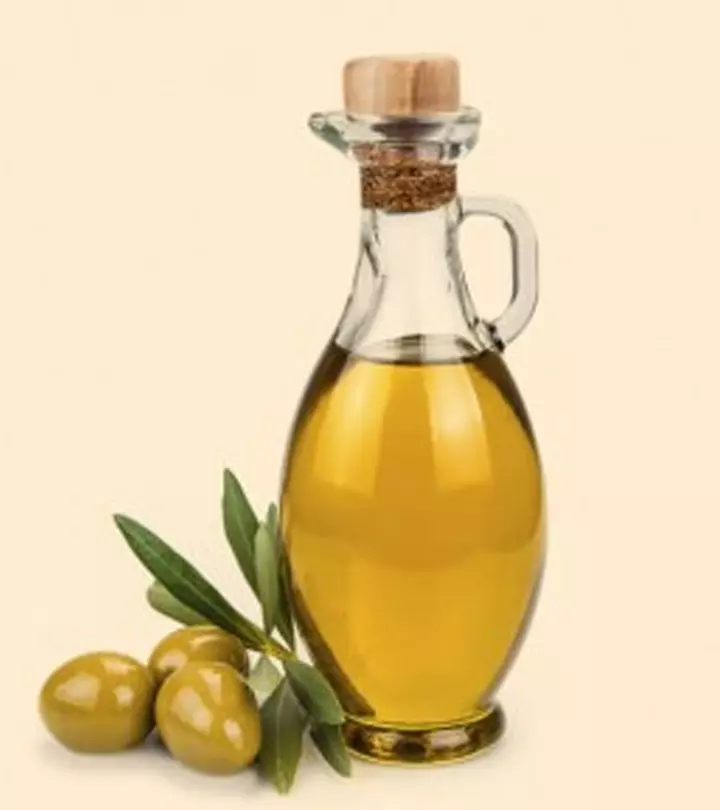
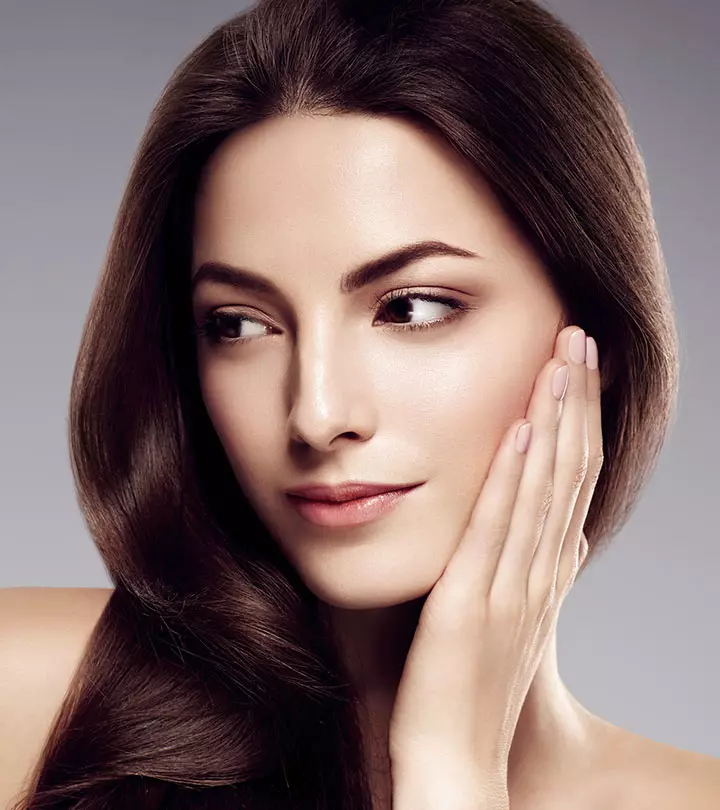
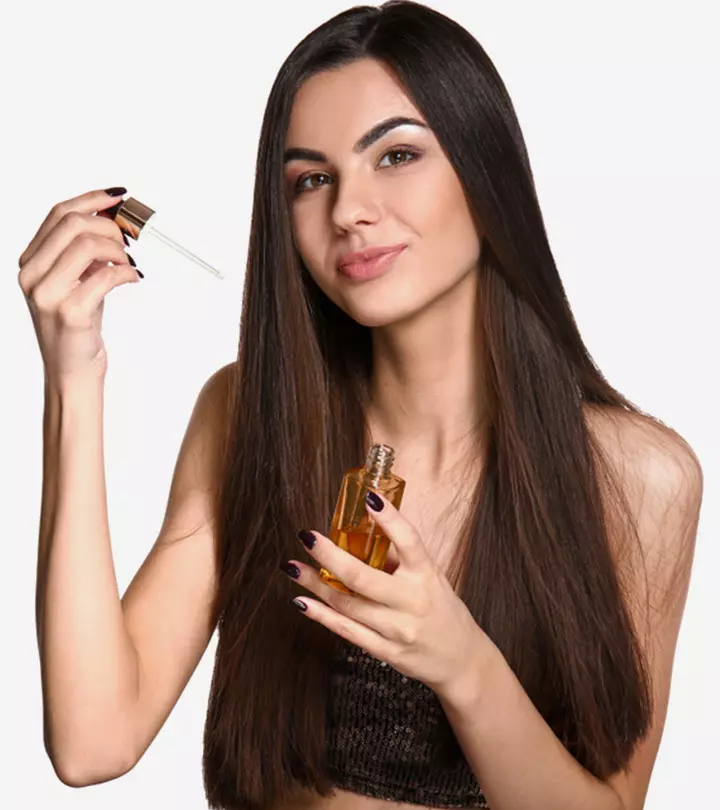

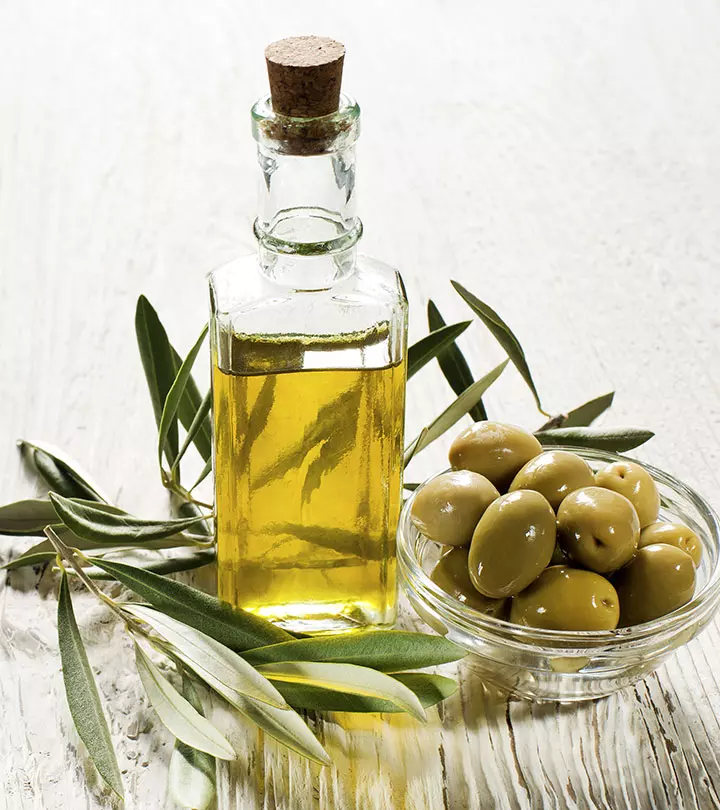
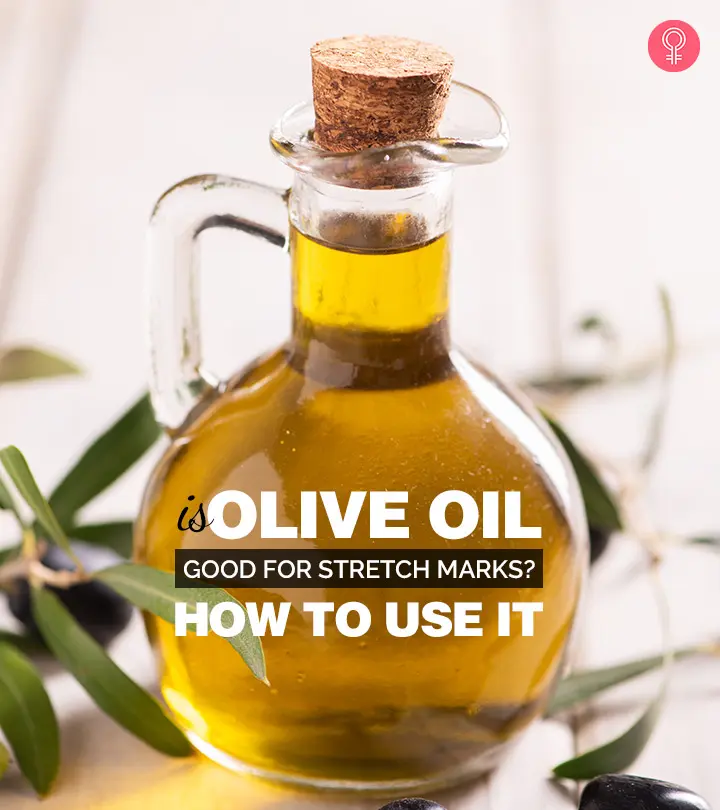
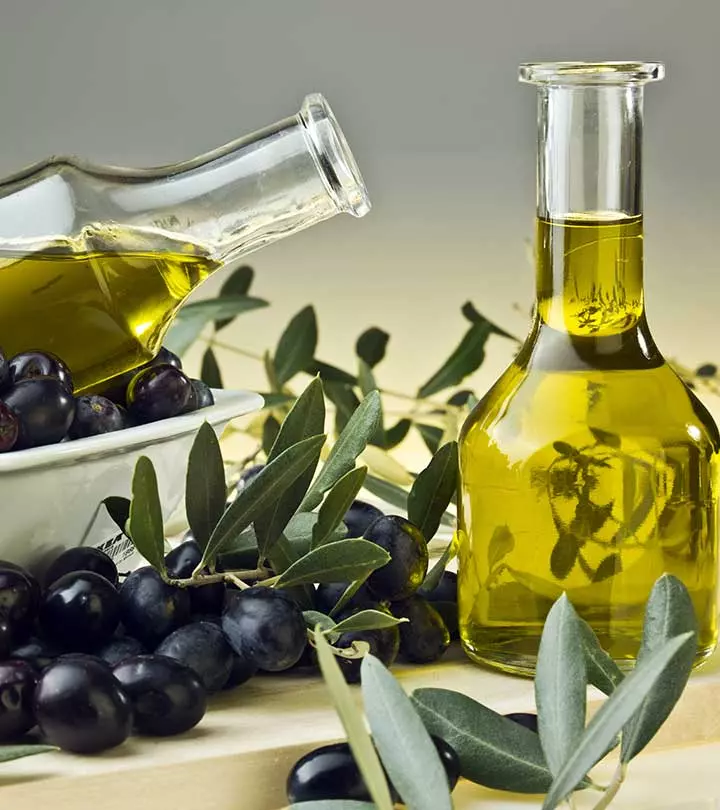
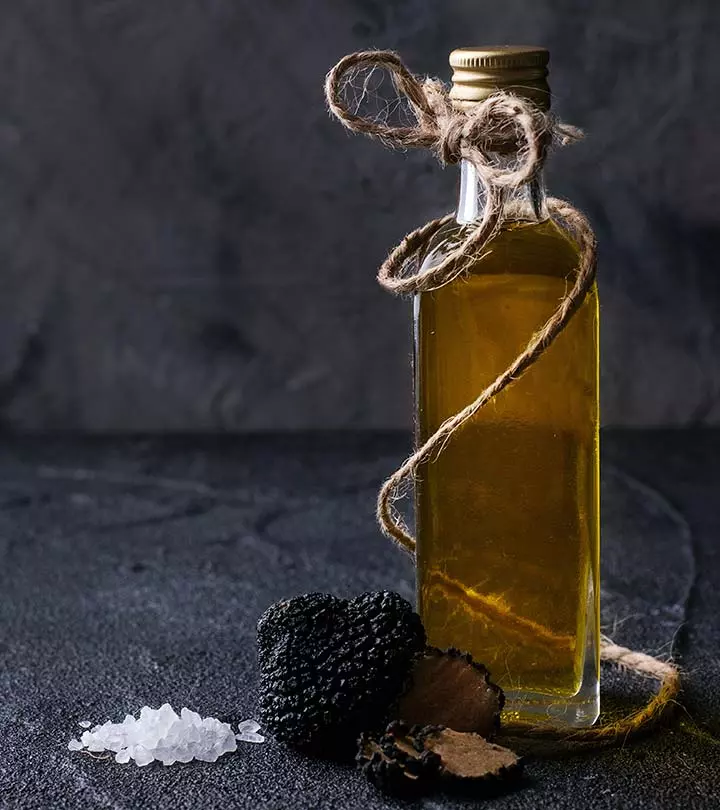
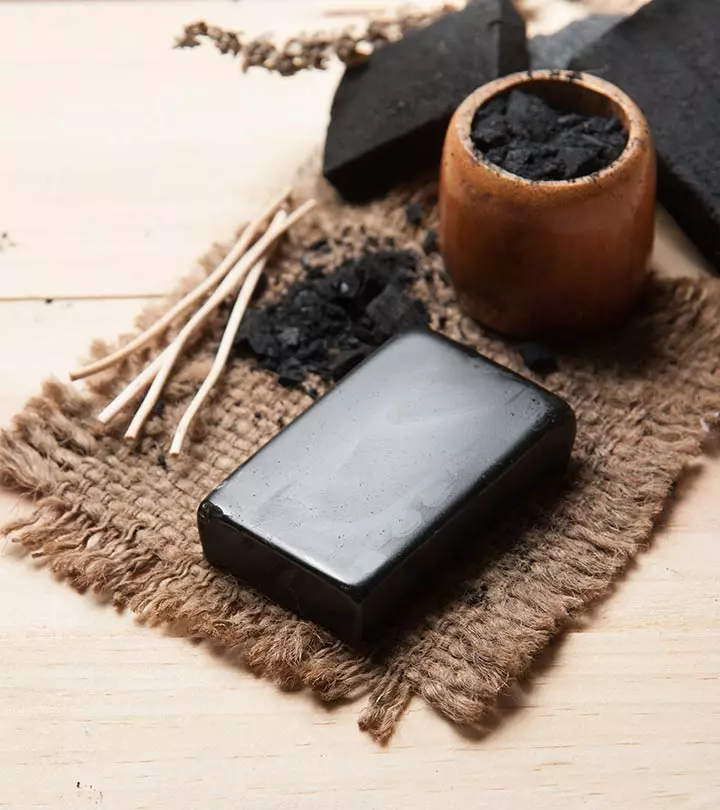
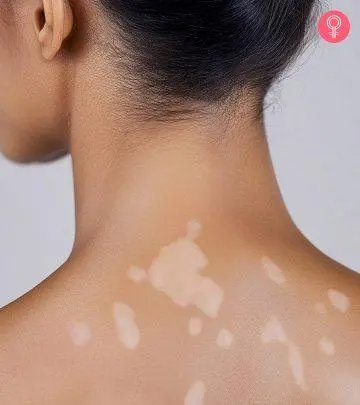
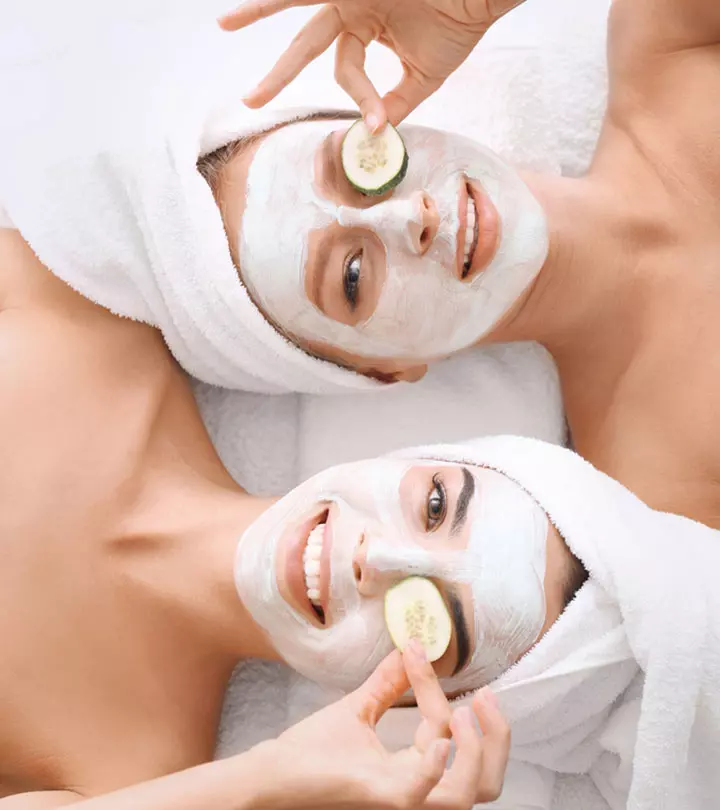
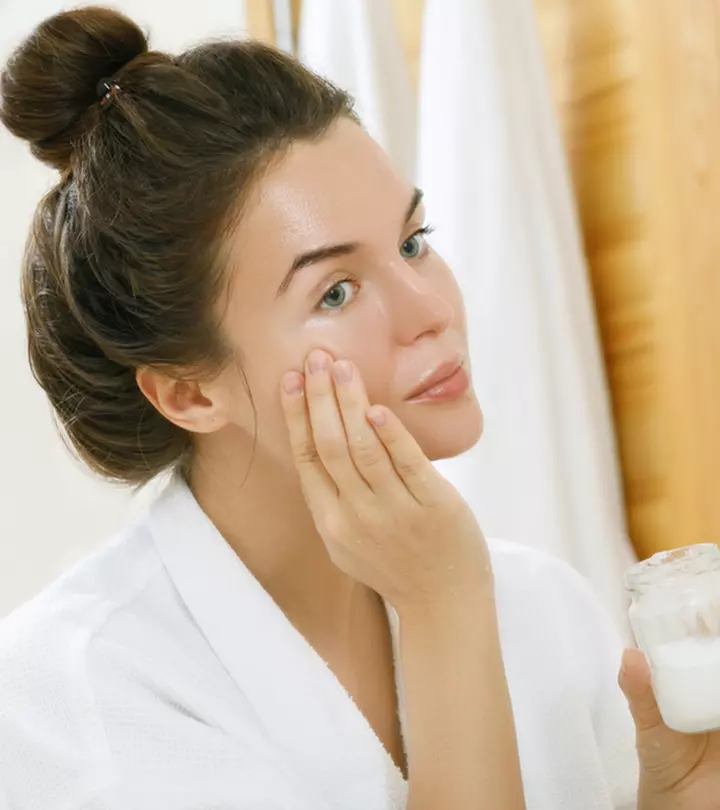
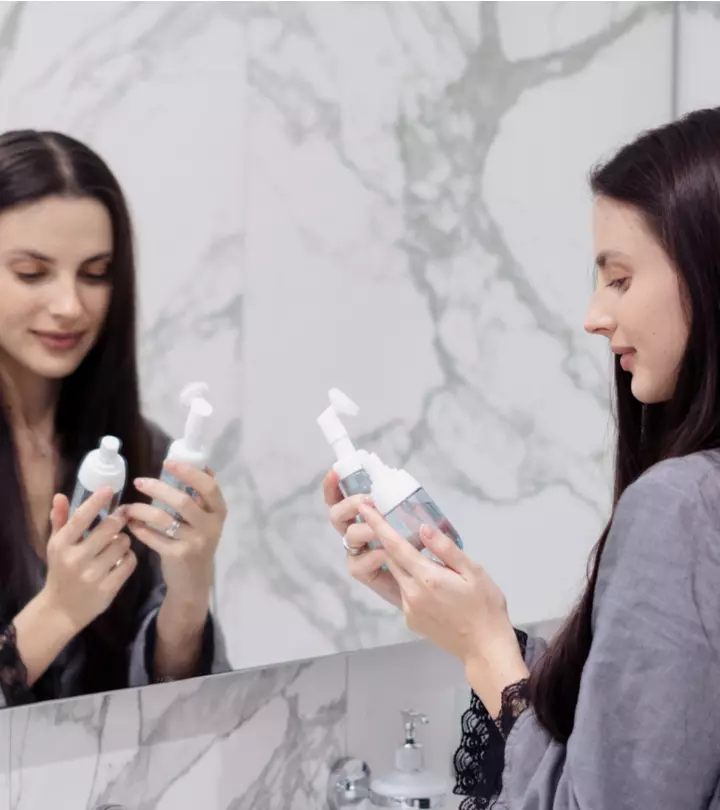

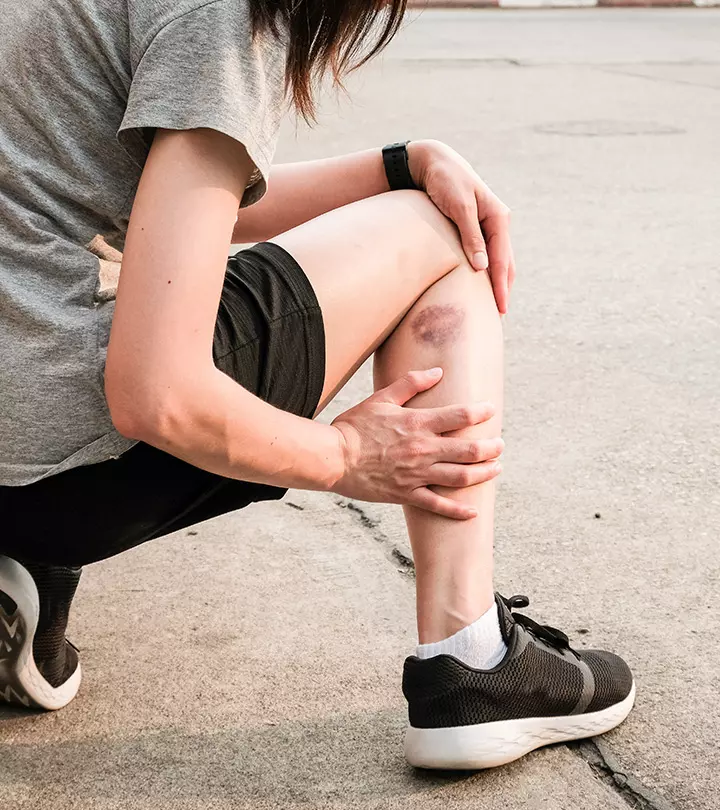
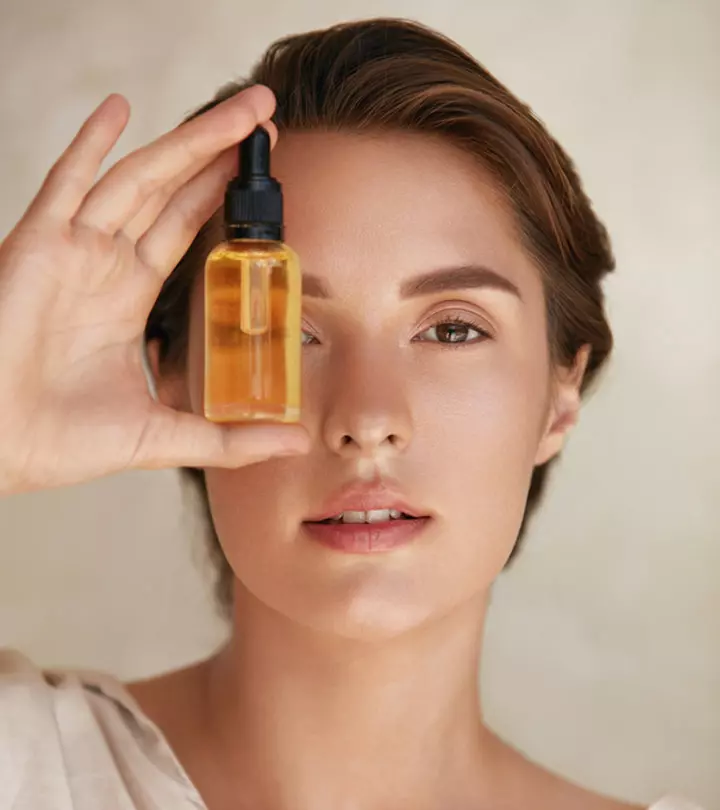
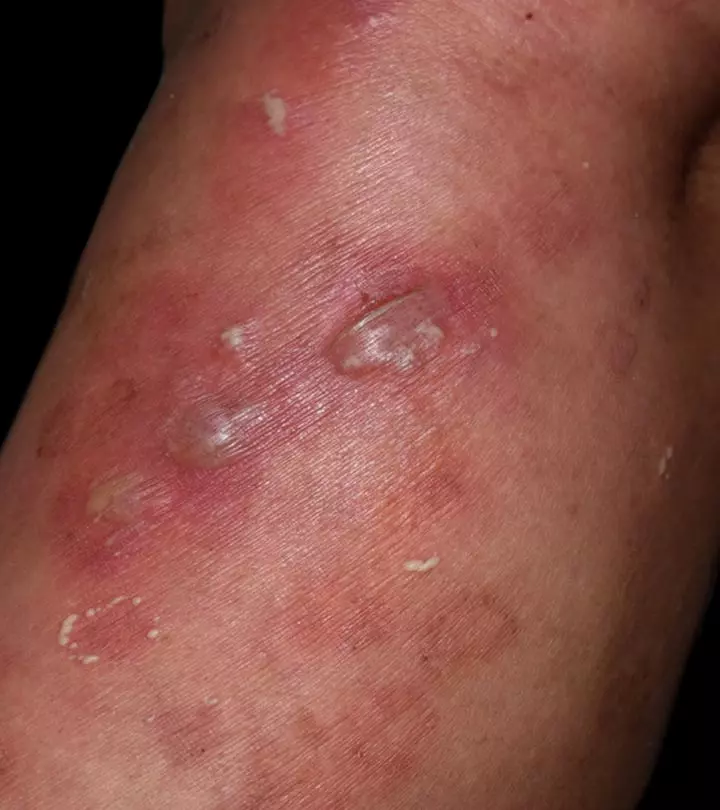
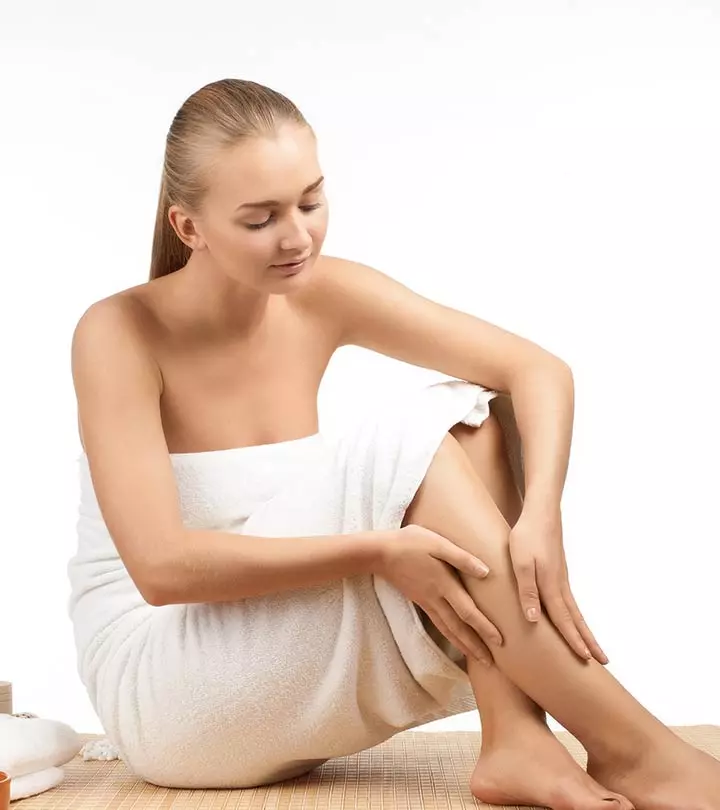
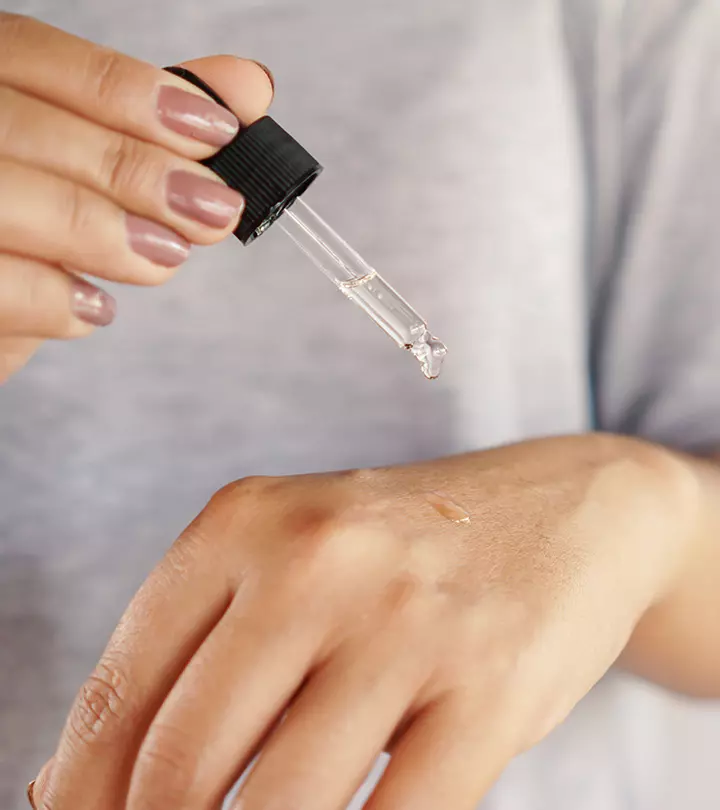

Community Experiences
Join the conversation and become a part of our empowering community! Share your stories, experiences, and insights to connect with other beauty, lifestyle, and health enthusiasts.